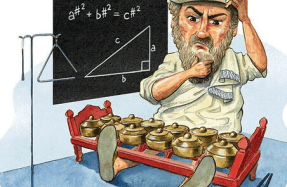
The year is 1794. The Reign of Terror is in full swing in Revolutionary France, with thousands being executed at the guillotine. The latest imprisoned aristocrat appears before the Committee of Public Safety who will decide her fate. She is not alone. As well as the police guard, this 30-year-old woman is accompanied by an item more typically found in a Parisian salon than a courtroom – a piano. She is reputed to be one of the country’s finest musicians, and if she’s good, as the delegation of musicians advocating for her have promised, then she could be of use, first for ‘patriotic events’, later at the capital’s new conservatoire. She is invited to take her seat at the keyboard, to play for her very life.
Almost inevitably, she is asked to perform , a 1792 rallying cry that would soon become the national anthem of the new French republic. What the pianist does with it is unexpected: after




